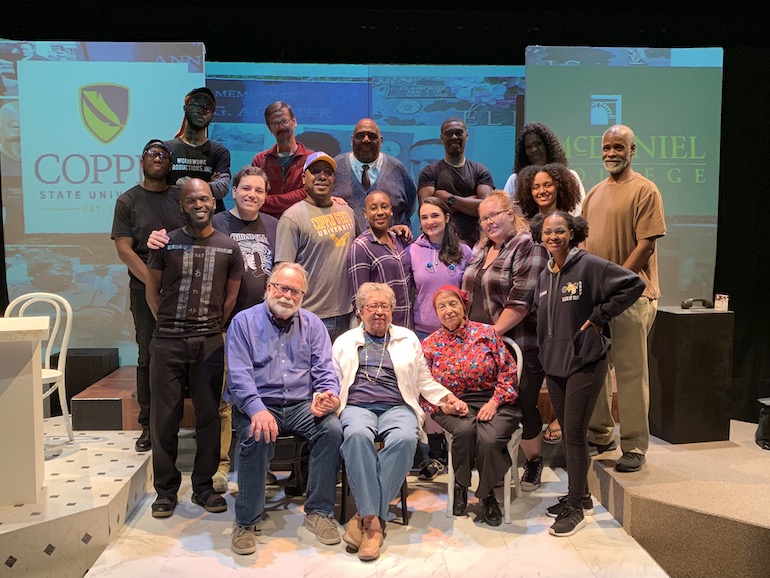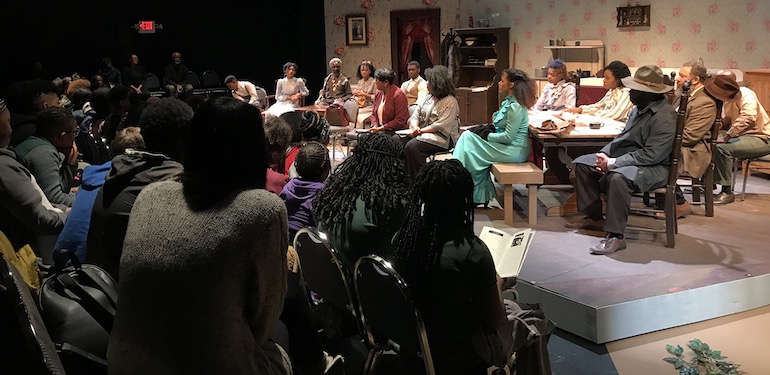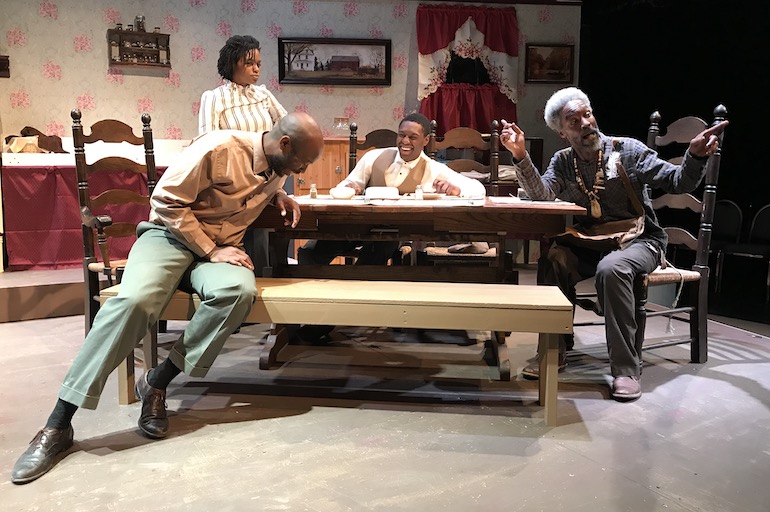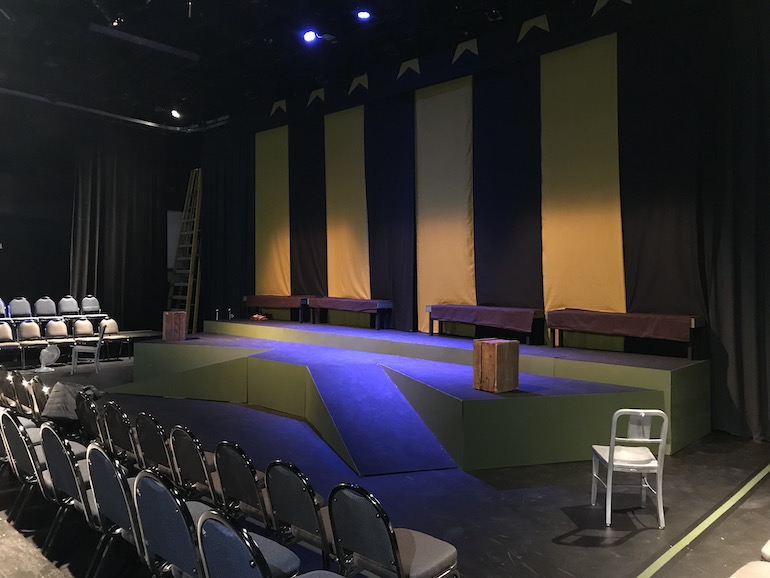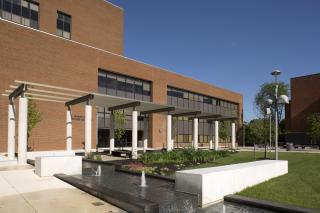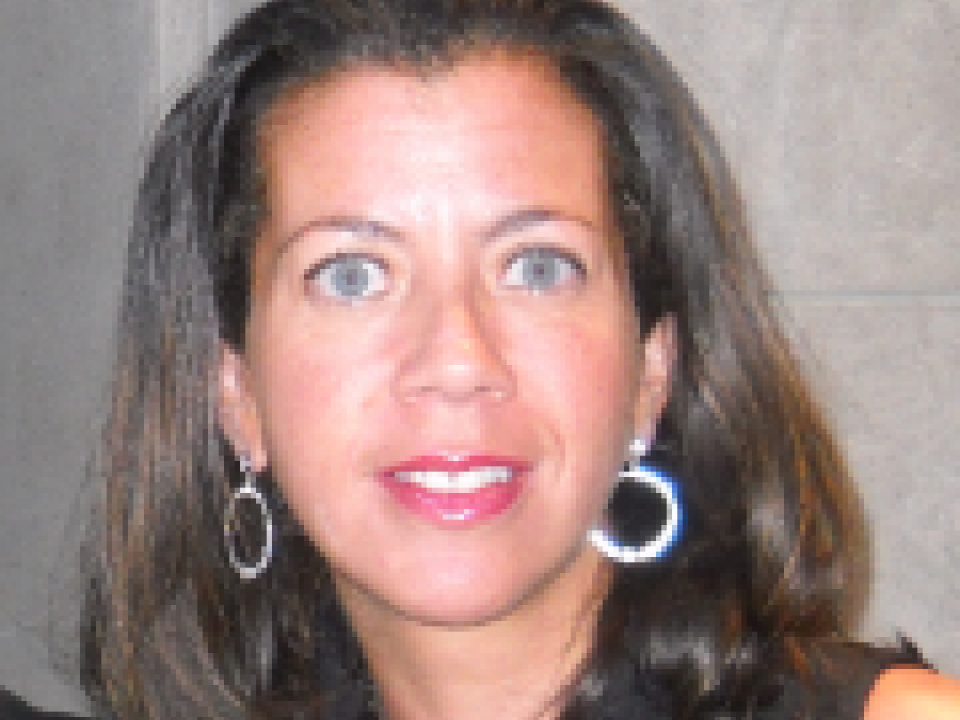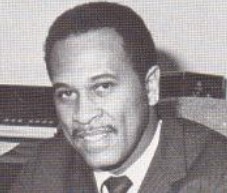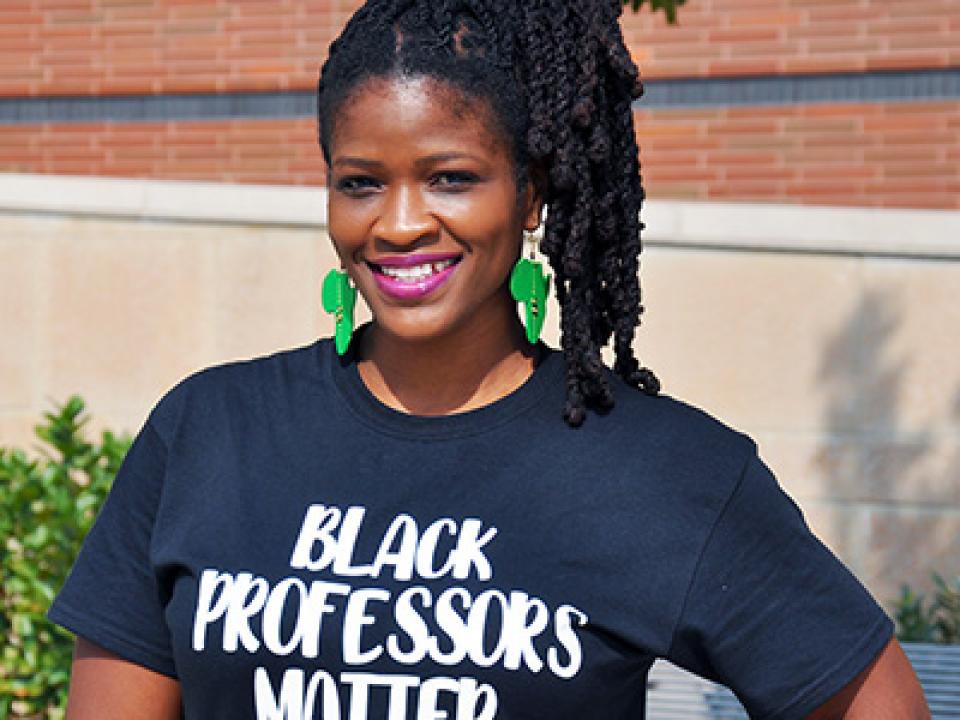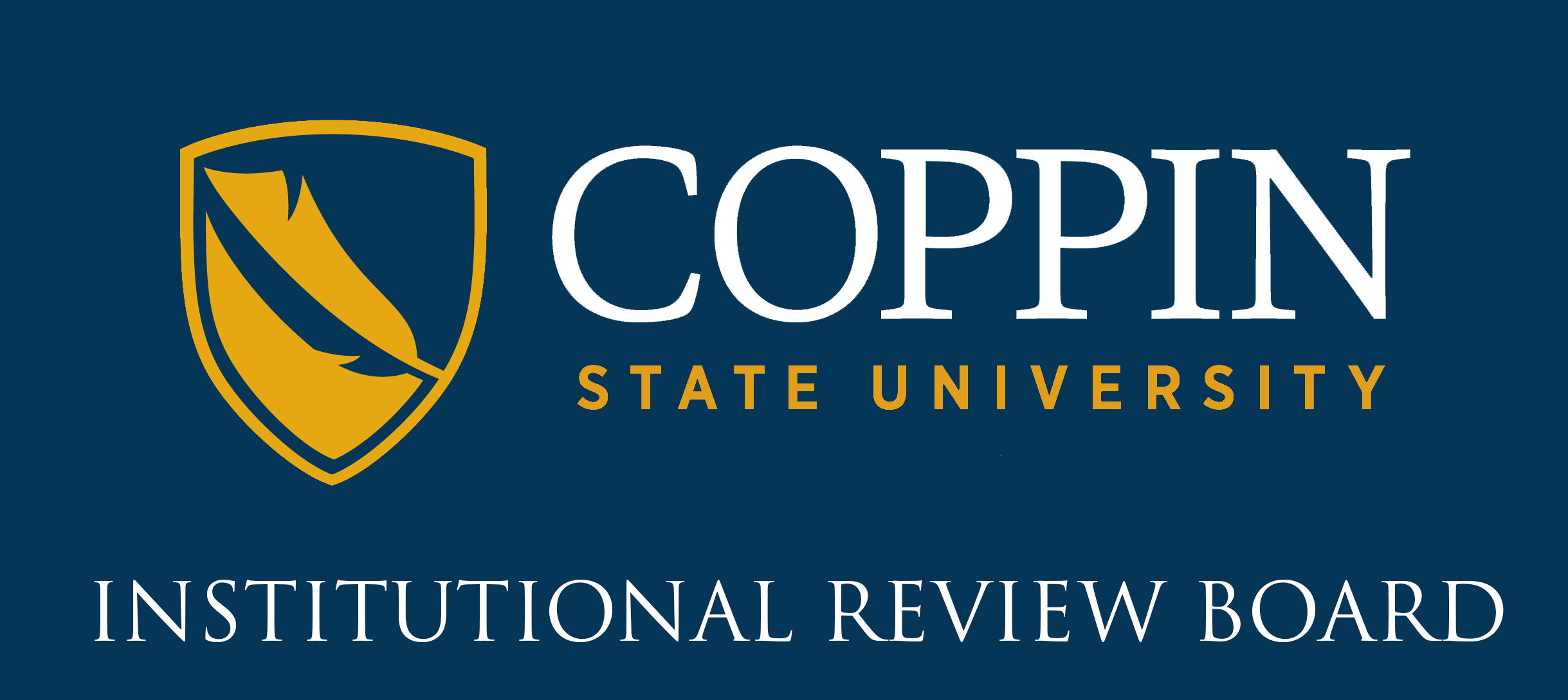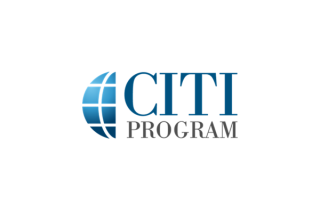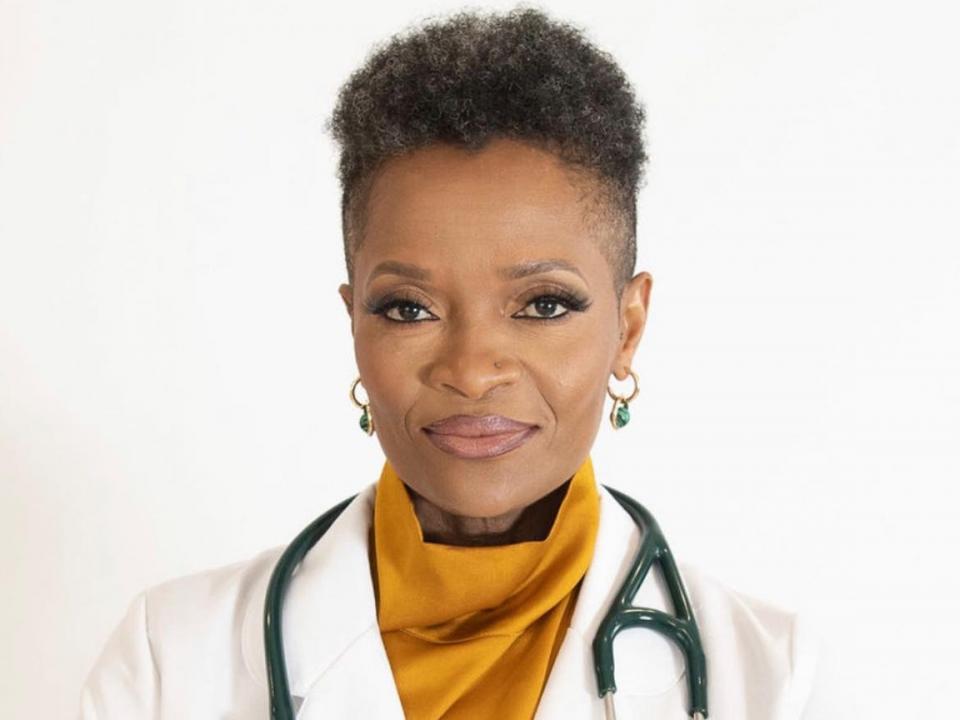Theatre Arts Scholarship
Theatre Arts Program
Theatre Arts Scholarship
Apply for the Scholarship
Theatre is a part of the Urban Arts major at Coppin. We are searching for talented individuals who are interested in majoring in theatre (Urban Arts) and whose gifts and passions are found in areas that feature on stage performances, and backstage work. Theatre is a gateway major that accommodates skills and competencies that will prepare students to work in environments that require integration and cross-pollination of thought, philosophy, and skills as 21st century learners.
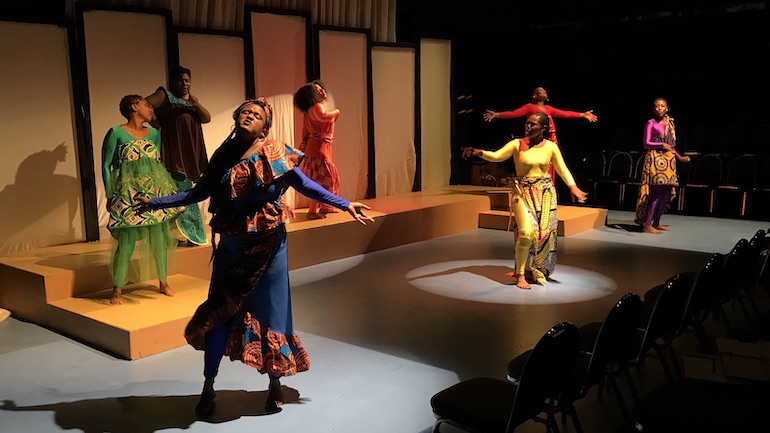
Preparing for the Scholarship Audition
What you need to do
- Perform a monologue that suits you and your age (no more than 5 years older or younger than your actual age)
- No overdone selections
- Choose and show drama that is active
- Character must tell an urgent story right now
- Know selection well
- No profanity (know sensibilities of the adjudicators)
- Selection should honor time limit
- No dialects
Pre-preparation
- Give yourself time to get ready (can’t start the night before)
- Make a good impression
- Spend lots of time reading scripts, screenplays, poetry, fiction, musical scores, and other sources for audition material. Give yourself many options to make your final choice(s).
- Find or adapt the perfect selections
- Spend time rehearsing under the guidance of a trusted director or coach
- Research the full production
- Understand every word you speak (look up unfamiliar terms and expressions)
- Make it fresh
- Practice your slate
- short and upbeat
- A sincere greeting, your name, the play from which your selection is taken, and the author is sufficient information
- Place a chair, if needed, and set before your introduction
- Begin and end strongly
- Practice your entire presentation
- At the end, restate your name, the selection, your number and say a dignified “Thank you” and exit
Your Appearance
- Dressing is a part of the “package”
- Polished, professional appearance
- Clothing with neutral, plain, and solid colors work best
- Avoid noisy footwear and jewelry (keep jewelry small and unobtrusive—again, loop earrings may steal the attention from your work; you are not there to make a fashion statement)
- Dancers should not hide their bodies beneath loose clothing
The Printed Materials
Résumé, application, sheet music:
- Neat and error-free
- Music should be in the proper key (with returns, tempo changes, and other irregularities marked clearly for the accompanist—remember, this is somebody who will be reading the music on the spot)
Taking Care of Yourself
- Take care of your voice
- Get a good night’s sleep
- On Audition day
- Eat lightly before the audition
- Arrive early enough to scope out the audition space, if possible
- Find a quiet place to warm up your voice and body
- Know where you will focus your eyes during your presentation
- Experts suggest visualizing your partner at some point just above the heads of the auditors
- Address your listeners directly
- Be sensitive to the acoustics of the space. Use sufficient breath to fill the room with your voice
What Not to Do
- Do not apologize or make excuses
- If you blank out, take a breath, remember your character’s objective, find a line, and continue
- Never ask to start over, particularly in a singing or dance audition
- Be prepared to answer auditors’ questions when your presentation is over. Know the full play, your character’s objectives, and intentions
- Dancers, especially, should remain in their places until excused
- Enjoy yourself. Share your love of performing with your audience
Pointers for Completing the Audition
- Be animated
- Show range in pitch and physicality (do not be monotone)
- Use your whole body and not just from the waist up
- Use the stage
- Do not turn your back to the audience or turn your performance to the side. Let the director see the open (full front) view. It is the strongest body position for your presentation.
- Feel free to use several levels, i.e., sitting in a chair, standing, walking with a purpose
- Speak with a clear, distinct, and articulate voice
- Listen to the text that you are speaking or singing or dancing to for the show. Let it make sense to you.
- Please look and learn to pronounce words that are not familiar to you before coming to the audition
- Do not perform an act that has offensive words, trigger words or vulgar language (plenty of time to explore that avenue later)
- Stay away from sexually suggestive works.
- Either sing a cappella or with an instrumental track. DO NOT SING WITH THE CD. We want to hear you and not the original artist singing.
- Act like you want to win a spot in the show! Make it hard for the sponsors to say no to you.
- Choose a work that shows your range of talent.
- Choose one that is age and gender appropriate.
“Luck is what happens with preparation meets opportunity.”
Be very prepared. You are trying to make a good impression. Break-a-leg!
Contact Us
The faculty provides nurturance through instruction, leadership, mentorship, advice, and interactive learning methods to engage students in theory, scholarship, practice, and community service. In addition to the staff and faculty listed below, we'd like to thank the following Adjunct Faculty team members too:
The Theatre Program is within the Department of Humanities in the College of Arts & Sciences, and Education.
